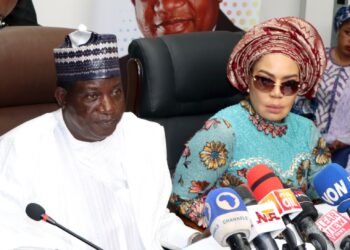At last, after weighing several options in the quest to seek justice for her citizens killed through incessant and unwarranted xenophobic attacks, Nigeria has settled for legal action against South Africans to seek redress for her citizens.
The Country has resolved to drag the South African government to the African Court of Human and Peoples Right in Arusha Tanzania, following the collapse of Diplomatic moves to stop the killings.
Highly dependable sources in the Federal Ministry of Justice in Abuja said on Thursday that the legal action is to be filed in any moment to enforce the fundamental rights and freedoms of the affected Nigerians and other African nationals.
Nigeria is said to have hinged its legal action against the South Africa due to the refusal of the South African government to accept and make use of diplomacy to resolve the killing and also to the fact that the country (Nigeria) is a party to the African Charter on Human and Peoples Rights having ratified the charter on June 22, 1983.
The legal option is also predicated on Nigeria’s ratification of the Protocol to the African Charter on Human and Peoples Rights on the establishment of an African Court on Human and Peoples Rights done 20th May, 2004
The source said “following repeated incidences of killings, maiming and destruction of properties of Africans especially Nigerians living in South Africa and since it appears diplomacy has failed to prevent the South Africans from committing xenophobic attacks on foreigners, particularly Nigerians; it behooves the Federal Government to exercise its duty under International law to protect the rights of its citizens in diaspora”.
“It is an elementary principle of international law that a state is entitle to protect its subjects, when injured by acts contrary to international law committed by another state, from whom they have been unable to obtain diplomatic action or international judicial proceedings on his behalf, a state is in reality asserting its own rights- its right to ensure in the person of its subjects, respect for the rules of international law.”
“In a South African reported case- Kaunda y. President of the Republic of South Africa, which lends credence to the Nigeria’s position, the Constitutional Court of that country states that:
“There may… be a duty on government, consistent with its obligations under international law to take action to protect one of its citizens against a gross abuse of international human right norms.
“A request to government for assistance in such circumstances where the evidence is clear would be difficult, and in extreme cases, possibly impossible to refuse. It is unlikely that such a request will ever be refused by government, but if it were, the decision will be justiciable and the court will order the government to take appropriate actions.”
“Thus even if Nigerian Government is refusing to act in this circumstance, Nigeria can be compelled to take actions by the Court. The decision of the South African Constitutional Court is further corroborated by Art. 19 of the Draft Articles on Diplomatic Protection which provides that:
“A state is entitled to exercise diplomatic protection according to the present draft articles, give die consideration to the possibility of exercising diplomatic protection, especially when a significant injury has occurred; take into account, wherever feasible, the views of injured persons with regard to resort to diplomatic protection and the reparation to be sought; and transfer to the injured person any compensation obtained for the injury”
“Nigeria is thus entitled to take actions in this xenophobic attacks on her citizens because South Africa has blatantly and with impunity failed to apply the “National Treatment” principle, treatment equal to that given by South Africa to its own nationals to foreigners within its territory and consistently encouraged gross violation of the Fundamental Rights and Freedoms of Nigerian citizens living in that country.
Furthermore, when a State disregards the application of either, the “international minimum standards” or the “national treatment” principles by resorting to killings, indiscriminately arresting and violating the fundamental rights and freedoms of foreign nationals in its territory, it is a clear violation of Article 55 (c) of the United Nations Charter and other International Human Rights.
“It must be unequivocally stated that Nigeria owes all its citizens in South Africa the obligation to protect and defend them. This obligation, Nigeria must immediately exercise by calling for a meeting to collate the numbers of Nigerians affected, the nature of injury suffered and the estimate of individual losses”, the source said.
It will be recalled that several Nigerians had been killed, maimed and injured during the xenophobic attacks launched on them by restless South African youths in the past five years due to the failure of South Africa to apply national treatment principles on the emergence of xenophobia on Nigerian citizens and other African nationals.
However, the Attorney General of the Federation (AGF) and Minister of Justice Mallam Abubakar Malami (SAN) declined comment on the latest move by Nigeria against South Africa on the legal option.



